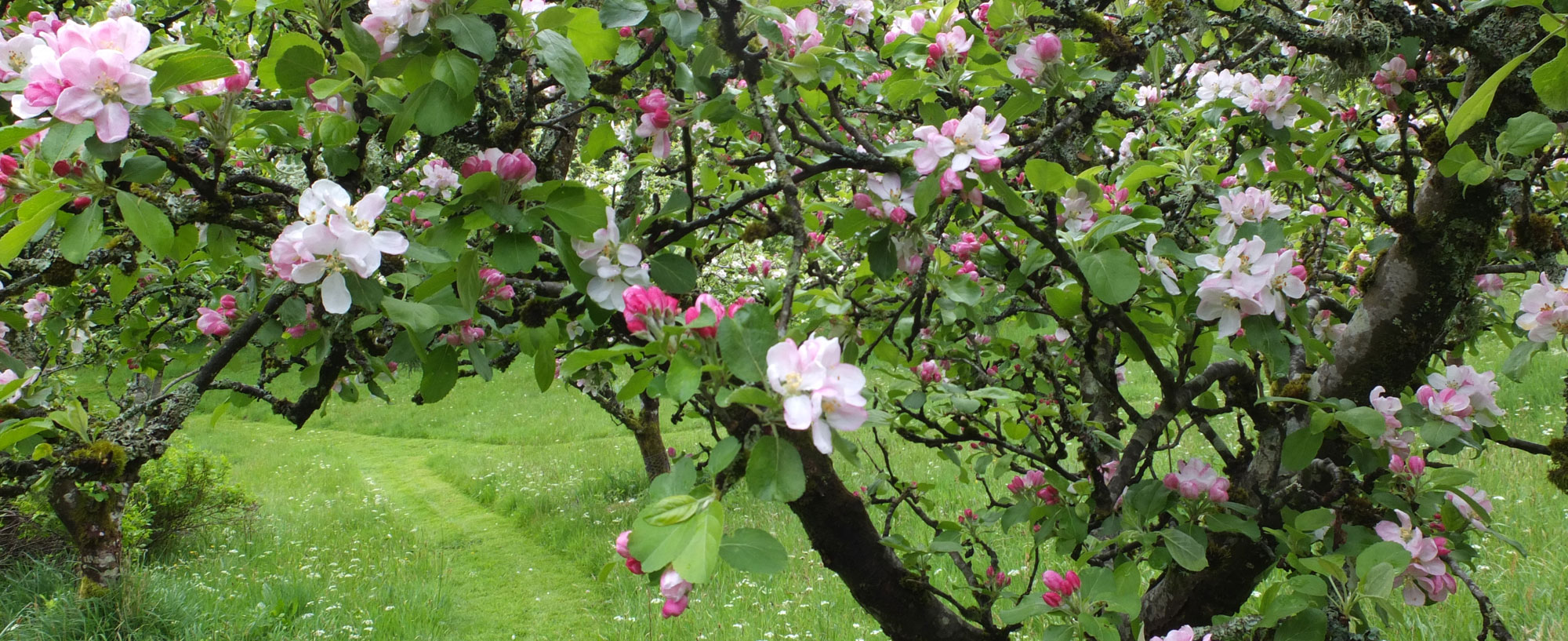This time last year we were bathed in glorious warmth and sunshine. This June has been a washout. But it has also been cold with a blocking low pressure in the North Sea. Our garden plants look bedraggled and despondent. The forecast looks promising next week so I’ll go out and tell them to cheer up.

The cold and wet weather hasn’t held back our orchids. Northern marsh, common spotted, heath spotted and hybrids in between are starting to fleck through our meadows. We have taken the ponies to a neighbour’s pasture for the summer so the wild flowers in the pastures outside our hay meadows have a chance to bloom this summer. Although the ponies tend to leave orchids alone they can tromp on them.


Our plant of the month is Clematis montana wilsonii. It is planted at the top of the stone steps leading down to the lower lawn meadow and orchard. The wafted scent of vanilla on the air in an evening brings an exotic feel to the garden.

Like thieves in the night badgers have been ripping through our lawns and meadows. They are looking for earthworms, slugs, grubs and beetles but being opportunists they will eat bulbs and tubers such as pig nut and if they come across a mouse or vole nest they will go for them as well.

We have rewilded a part of the garden hoping to attract ground and shrub nesting migrants such as black cap, chiff chaff and garden warbler. We have one swift nesting in the eaves of the house but I hope this cold weather is not putting her off. We haven’t had swallows nesting this year at Yewfield which is a big worry but according to BBC Springwatch swifts and swallow numbers are well down around the country. Poor weather this spring on their migration route from Africa is claimed to be the main culprit although suspicions around declining vertebrate numbers are also being attributed.

We’ve ordered 3200 trees and shrubs today from Cheviot Tree Nursery near Berwick. They are to be planted in Sawrey Ground Plantation where our larch has been removed due to larch disease - Phytopthrora ramorum. Along with wilding parts of the garden we are wilding our woodland as well. Almost all the trees and shrubs are native, adapted to the site and soil of the Lake District. There will be spaces between and among the plantings for natural regeneration. We hope birch and rowan will establish quickly before bramble, creeping soft grass or bracken take over. Along the edges patches of bramble and shrubs will be left for ground nesting birds. We are excited about the prospect of regenerating native woodland. This country needs many more trees and in particular the Lake District, for habitat, timber, flood control and carbon sequestration.

Go back to all blog posts or read the next entry in our blog here →
You can also read the previous blog post here.
